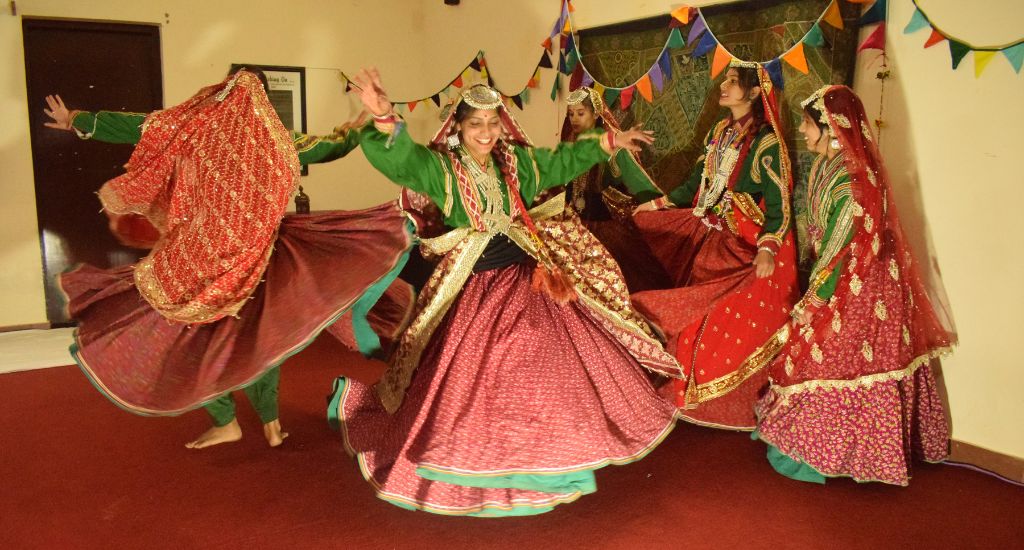Abdullah leads a hard life. Every day, in the darkness of early morning, the seven-year-old boy washes down the previous night’s leftover roti with a large cup of hot tea. Armed with a big, empty gunny sack, he and his mother go to work – rag picking.
It’s a hard and risky business, scavenging for hours through soiled and rotting garbage heaps, looking for paper, glass, plastic and metals. It’s almost noon by the time they sell their booty for a couple of hundred rupees – enough for the day’s ration.
Abdullah and his mother stay in one of the two rural slums on the periphery of Lucknow, the capital city of Uttar Pradesh. A majority of the residents are Muslim migrants from West Bengal and Assam. Most are laborers or rag pickers. Their shoddy hutments are made of mud and hay and are covered with plastic sheets.
In the middle of these poverty-stricken huts is a brightly painted bamboo structure, standing like an oasis. The place is clean with mats on the floor, chairs, slates and a lot of reading and writing books stacked up neatly. This is the center of Global Dream Shaala – a literacy initiative of DEVI Sansthan, a non-profit organization. The Dream Shaala classroom platform aims to make both children and adults literate in just 30 hours.
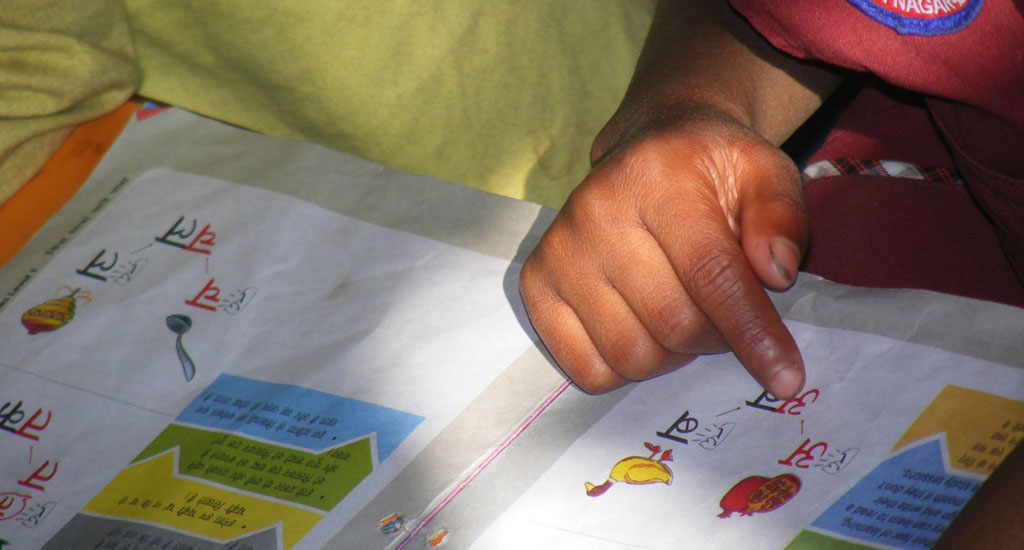
Around 11 in the morning the place comes to life when the learners return after their day’s work. The 120 students are of all ages – from four-year-old children to fifty-year-old grandparents.
Education after earning
Before joining the Dream Shaala course, Abdullah had nothing to look forward to when he dragged his aching body back to the slum after a day of scavenging. But not anymore. After a quick wash and grabbing some morsels of warm food cooked by his elderly aunt, the little boy is ready to enter a different world. It’s something he looks forward to every day after work.
“I like to come here, to learn and play. I want to stay here forever,” he said.
It’s a world of numbers and words. He likes being at the center. It makes him happy to feel inclusive, something totally lacking in his own environment. He likes to participate in the games, sometime sing Bollywood songs, play carom and, of course, learn. Street-smart Abdullah says he’s proud that he can now easily count the money that he earns from rag picking.
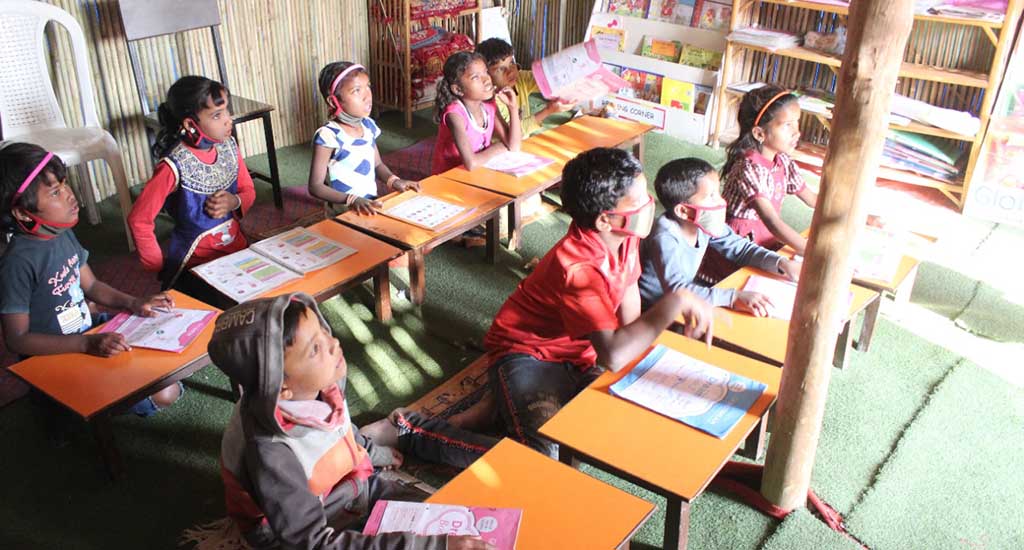
The aim of the program is to give the students a clean and creative environment. It uses a special toolkit as a flexible curriculum, using a dynamic learning process depending on each child’s need. The emphasis is not on rote learning but mind work – asking children what they know rather than making them repeat the lessons.
“Literacy is possible in just 30 hours,” educationist Sunita Gandhi – the brains behind this literacy mission – told VillageSquare.in. “We start with 15 minutes of group activities and games, followed by two sessions on letters and numbers each of 15 minutes duration. The last 15 minutes are for relaxation.”
Students turn teachers
Though the literacy program was launched in 2014, the classroom concept was introduced in December 2020. Earlier Dream Shaala had distributed 67,000 toolkits containing simple language and number booklets to 50 schools and educational NGOs around Lucknow. The schools included this as an activity in their socially productive work project.
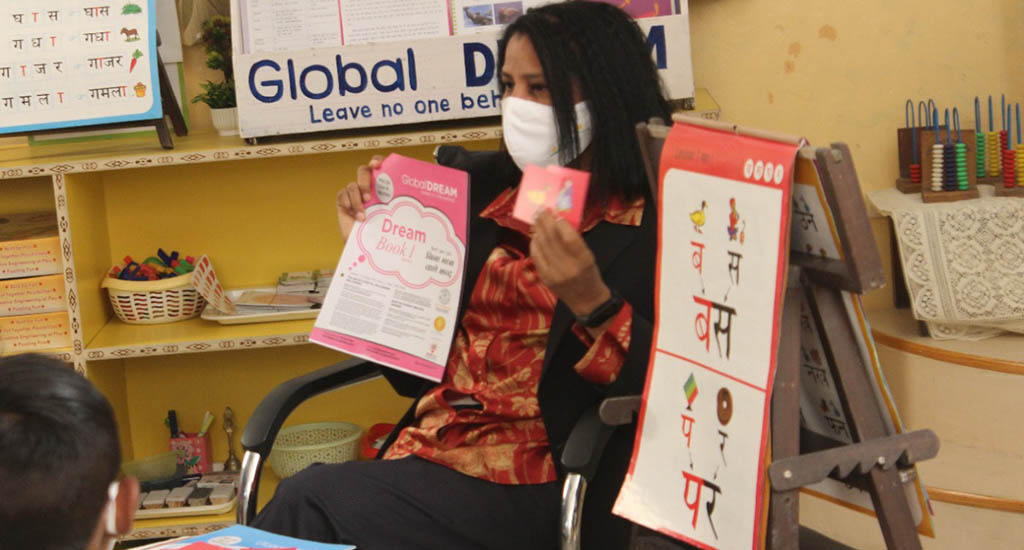
But the unique concept uses students to find learners, teach them and report the progress of new students to a teacher using data.
“Lot of brainstorming was done to reach the learners directly and this resulted in setting up our own semi-permanent structure for more impactful work,” said Shakeela Hasan, a retired teacher who was part of the advisory team. “In addition to the NGOs we decided to involve graduate students of social work.”
Positive pandemic effect
“Initially it appeared that the pandemic had reversed years of literacy gain and for almost nine months everything was at a standstill,” said Gandhi. “When we think back, the pandemic helped us upscale.”
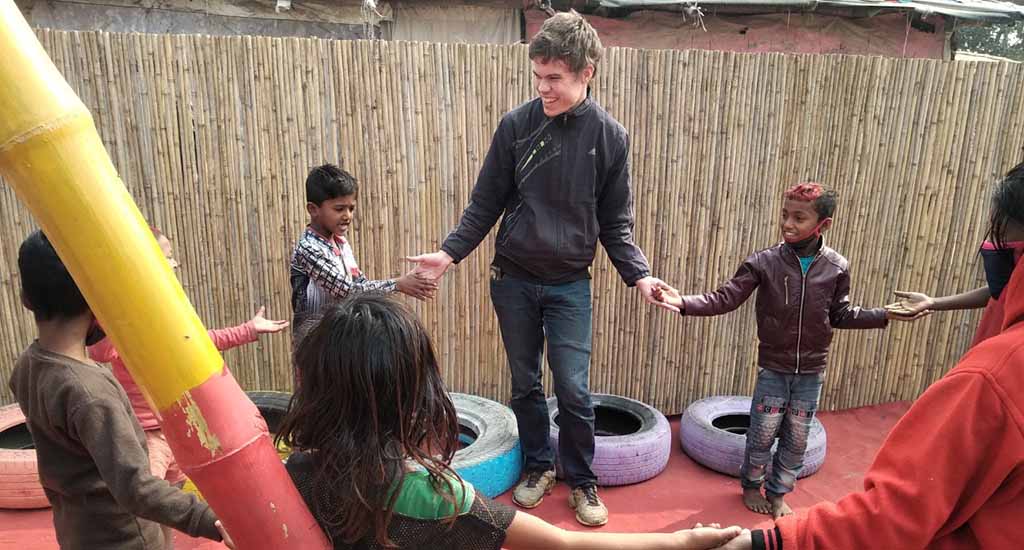
Through strategic planning, an online concept was launched in December 2020. While the second, more severe wave of the pandemic impacted the program for a few months, the digital app now means that learning can be done anywhere.
“Anywhere, anytime, by anyone and will reach learners not only across India but impact literacy in many developing countries,” said Gandhi, adding that the program is now available in 13 Indian languages as well as several international languages.
However, presenting a realistic picture, Miltia Haldar, part of the 3-member team managing the center, said that the digital format, though nice, did not suit their system. They work among the poorest of the poor who cannot afford a smart phone, never mind poor network coverage which makes it impractical. She prefers the physical classroom where the learner and trainer could interact directly.
And, of course, Abdullah agrees.
Kulsum Mustafa is an independent journalist based at Lucknow. Views are personal.

